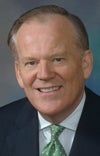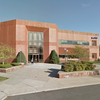Region's Employers Need Increase In H1-B Visas

One of the greatest constraints to continued economic growth in New England is the inability of business to hire skilled workers. Faced with an older workforce, stagnant population growth, and a declining interest in science, technology, engineering and math (STEM) fields among college bound high school students, businesses in the region have become increasingly dependent on foreign workers with STEM backgrounds.
Ticket To Hire
The H-1B visa program, established by the Immigration Act of 1990, allows employers to supplement their current workforce with highly skilled foreign workers. The visa must be used for staff in specialty occupations — those occupations requiring a great deal of specialized knowledge along with at least a bachelor’s degree or its equivalent — e.g. engineers and architects. Professionals such as accountants, doctors and lawyers must also be licensed to practice in the state where they will be working. The visa is typically valid for up to six years, and is “capped” at 65,000 annually. The Department of Labor requires United States employers to meet specific labor conditions to make sure that American workers are not adversely impacted by the program and that the foreign workers are properly compensated and treated.
The demand for these workers continues to grow, however, with the limit on the numbers of H-1B visas issued each year reached on the first day of the application process. This “cap” of 65,000 was first set in 1990 at the program’s inception, and with limited exceptions has not been increased since.
The New England Council supports increasing the number of visas issued under the H-1B visa program. The council also supports retaining the exemptions for the higher education sector, which attracts a considerable number of foreign students seeking advanced degrees along with foreign-born professors specializing in subjects that are highly sought after by our higher education institutions. The H-1B Visa Reform Act of 2004 makes an additional 20,000 H-1B visas available annually for those with a master’s degree or higher from a United States university. Our region is preeminent in academia and scientific research because it attracts so many talented people from around the world.
Workforce Wants
The needs of New England’s High Tech employers are immediate. Unless we provide them with the qualified workers that they need, they will be forced to go elsewhere.
Additionally, certain businesses across the country, particularly those associated with summer and winter resorts, have traditionally relied on foreign workers to supplement the staff during their busiest months.The H-2B working visa allows foreign nationals to enter into the United States temporarily to engage in non agricultural employment that is seasonal in nature. While currently limited to 66,000 each year, Congress, starting in 2005, excluded from this limit any H-2B visa issued to a worker that had received one for the previous three years. That exclusion has since expired, reducing the “cap” to 66,000.
This is particularly detrimental to the businesses that rely on these foreign born seasonal workers during the late spring and summer since these businesses cannot apply for the visa until 120 days before the worker’s expected start date. Although the visas are split evenly between the first and second half of the federal fiscal year to accommodate both summer and winter businesses, the U.S. Citizenship and Immigration Services reports that the cap for the first half of Fiscal Year 2008 was reached on September 27, 2007 while the cap for second half of Fiscal year 2008 was reached on January 2nd, 2008.
Any business applying for a visa after that date is out of luck, with the resulting labor shortage likely to result in delayed openings.
Congress must act soon to increase the number of available visa in both categories. The foreign workers that will come here as a result are vital to the success, and in many cases, the survival, of many of New England’s businesses. n
Brett is president and CEO of the New England Council, the nation’s oldest regional business organization.









0 Comments